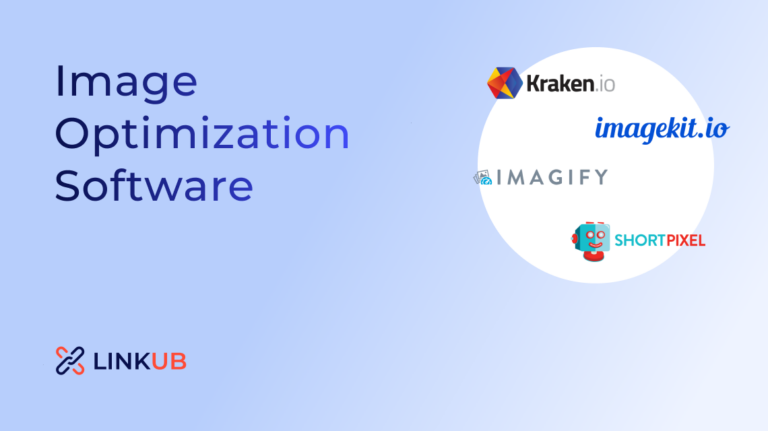7 Best Knowledge Management Tools in 2024
No one wants to search for information across several systems, platforms, apps, social media, communication tools, and computer programs.
To avoid wasting time on things that aren’t important, you need effective knowledge management software. These solutions can assist you in developing a well-organized, knowledge-sharing culture where everyone can grow and focus on what matters.
We’ve compiled a list of the top knowledge management software. Get ready to streamline your information flow and unlock your team’s full potential!
Top Knowledge Management Software
1.
Document360 is a cloud-based knowledge management platform designed to help teams create, collaborate, and publish user-friendly documentation. Key benefits include:
- Intuitive interface: Streamlines content creation with a user-friendly editor.
- Collaboration: Enables real-time editing, commenting, and version control.
- Customization: Offers customizable templates, themes, and branding.
- Powerful search: Integrates AI-powered search functionality for easy information retrieval.
- Access control: Manages user permissions and roles efficiently.
- Analytics: Provides insights into user engagement and content performance.
Pricing: Paid
Pricing page: https://document360.com/pricing/

2.
monday.com is a flexible work operating system (Work OS) that combines knowledge management, project management, and team collaboration. Key benefits include:
- Customizable workflows: Easily adapt to different teams and projects using customizable templates.
- Collaboration: Enhance teamwork with real-time communication, file sharing, and in-app messaging.
- Visual tracking: Monitor progress using Kanban boards, Gantt charts, and other visual aids.
- Automation: Streamline tasks with pre-built or custom automation, reducing manual work.
- Integrations: Connect seamlessly with popular third-party tools and platforms.
- Scalability: Accommodate organizations of varying sizes and complexity.
Pricing: Free/ Paid
Pricing page: https://monday.com/pricing/

3.
Guru is a cloud-based knowledge management platform that captures and shares information within teams and organizations. Key benefits include:
- Centralized knowledge: Store and access company knowledge in one place.
- AI-powered search: Quickly find relevant information using smart search features.
- Integration: Seamlessly integrate with popular workplace tools like Slack and Microsoft Teams.
- Real-time updates: Collaborate and maintain up-to-date knowledge with version control.
- Analytics: Track usage and measure the effectiveness of knowledge assets.
Pricing: Free/Paid
Pricing page: https://www.getguru.com/pricing

4.
ProProfs is a versatile knowledge management software designed to help organizations streamline knowledge sharing, collaboration, and training. Key benefits include:
- Comprehensive toolset: Offers knowledge base, eLearning, quizzes, and more.
- Customizable branding: Create a consistent look and feel across platforms.
- Collaboration: Enables real-time editing, feedback, and content sharing.
- Integrations: Connects with popular tools like Zendesk, Google Analytics, and more.
- Analytics and reporting: Track user activity and identify gaps.
Pricing: Paid
Pricing page: https://www.proprofskb.com/pricing/

5.
Helpjuice is a powerful knowledge management software designed to create and manage company knowledge bases, improve customer support, and facilitate internal collaboration. Key benefits include:
- Intuitive interface: Easy-to-use platform for creating and organizing content.
- Customizable design: Personalize the look and feel of your knowledge base.
- Advanced search: Help users find relevant information quickly and efficiently.
- Collaboration: Facilitates teamwork with real-time editing and version control.
- Analytics: Monitor user engagement, content performance, and areas for improvement.
Pricing: Paid
Pricing page: https://helpjuice.com/pricing

6.
HubSpot is an all-in-one inbound marketing, sales, and customer service platform that offers a knowledge management solution within its Service Hub. Key benefits include:
- Unified platform: Manage knowledge base, CRM, and customer interactions in one place.
- Easy-to-use editor: Create and organize knowledge base articles effortlessly.
- Customizable: Tailor your knowledge base’s appearance to match your brand.
- SEO optimization: Improve visibility with built-in SEO tools and analytics.
- Integration: Seamless connectivity with HubSpot’s marketing, sales, and service tools.
Pricing: Paid
Pricing page: https://www.hubspot.com/pricing/marketing

7.
ClickUp is a comprehensive productivity and project management platform with knowledge management features through its Docs and Wikis. Key benefits include:
- All-in-one solution: Manage projects, tasks, and knowledge base in one place.
- Collaborative editing: Real-time editing and version control for efficient teamwork.
- Hierarchical organization: Structure your knowledge base using folders and pages.
- Integration: Connects with popular tools like Google Drive, Slack, etc.
- Access control: Manage user permissions to ensure the right people have access.
Pricing: Free/Paid
Pricing page: https://clickup.com/pricing

Further reading
What Is Knowledge Management Software?
Knowledge management software makes finding and sharing information easier for staff and customers. This system aggregates data into a single collective resource, avoiding data silos and making it easier to discover information. Having all of your company’s information in one place makes it easier for stakeholders to find answers to their inquiries.
Knowledge management software also offers content development features such as a knowledge base that customers and employees can access. Because customers can quickly and easily locate solutions without contacting assistance, these self-service tools improve the customer experience.
Knowledge management comprises all activities that deal with: – knowledge and information collection – knowledge storage of incoming and existing owned knowledge – communication, and interpretation of this knowledge – creation, deployment, and use of organizational information and knowledge.
Your overall knowledge management system will benefit greatly from using these solutions.
Some Key Features of Knowledge Management Software Include:
Why Should You Invest in Knowledge Management Software?
- Improve productivity
Knowledge management software allows users to access information anytime and from any location, eliminating the need for help desks. - Encourage continuous learning
Instead of waiting for help, the tool encourages users to look for answers independently. As a result, they become more creative and more productive. - Improve interactions with customers
Customizing and enhancing the customer experience is possible when your client data is at your fingertips. In the end, this aids in developing long-term relationships with your clients and reducing customer turnover. - Ensure the preservation of organizational knowledge
It helps you elevate the entire company’s knowledge to a new level and improve its competitiveness with robust knowledge management software. - Reduce contact volume
An easy-to-use knowledge base greatly benefits your consumers and customer care staff. A knowledge base application frees up your support staff to handle more complex cases by making it easier for consumers to access the necessary information. - Provide a consistent stream of data
A central knowledge base removes the data that might offer diverse solutions to the same query by providing a single source of truth.
Wrap Up
And there you have it, our top picks for the best knowledge management tools that’ll revolutionize how your organization collaborates and shares information.
These platforms make capturing, organizing, and accessing knowledge easily, ensuring that your team stays in the loop and operates at maximum efficiency.
Remember, a well-structured knowledge management system can be a game-changer for your organization’s productivity and innovation.
So go ahead, explore these fantastic tools, and watch your team soar to new heights of success!
FAQs
Knowledge management tools are software applications designed to help organizations capture, store, organize, and share information, knowledge, and expertise more effectively. These tools enable businesses to create a centralized knowledge repository, making it easier for employees to access and leverage relevant information to improve decision-making, collaboration, and overall productivity.
The best knowledge management tools should offer the following key features:
• User-friendly interface and ease of use
• Advanced search and filtering capabilities
• Support for multiple content types, such as text, images, videos, and documents
• Collaboration and communication features, like comments, annotations, and notifications
• Customizable categorization and organization of content
• Access control and permissions management
• Analytics and reporting tools to monitor usage and engagement
• Integration with other business applications
Knowledge management tools offer several benefits to businesses, including:
• Improved decision-making through easy access to relevant information
• Enhanced collaboration and communication between employees and departments
• Increased productivity by reducing time spent searching for information
• Better knowledge retention and reduced loss of expertise when employees leave
• Streamlined onboarding and training processes
• Support for innovation and problem-solving by facilitating the sharing of ideas and best practices
The cost of knowledge management tools varies depending on the provider, the features offered, and the number of users. Some providers offer free plans with basic features, while others have tiered pricing models that cater to small businesses, enterprises, or specific use cases. Compare the features and pricing of different providers to find the best fit for your needs.
Yes, many knowledge management tool providers offer mobile apps for iOS and Android devices, allowing users to access and contribute to the knowledge base on the go. This can be especially useful for businesses with remote or field-based employees who need to access information away from their computers.
To choose the best knowledge management tool for your business, consider the following factors:
• Ease of use: The tool should be user-friendly and require minimal training.
• Features: Ensure the tool offers the needed features, such as collaboration, categorization, and analytics.
• Scalability: Choose a solution that can grow with your business and accommodate increasing content and users.
• Integration: Look for a tool that integrates with your existing software and tools, such as CRM, project management, or communication platforms.
• Support: Opt for a provider with reliable customer support and regular software updates.
Many knowledge management tools integrate with popular business applications, such as CRM systems, project management tools, communication platforms, etc. Integrations can help streamline workflows, improve collaboration, and provide a more seamless experience for your employees.
Reputable knowledge management tool providers prioritize security and implement robust encryption methods, secure data storage, and user authentication measures to protect sensitive information. Look for providers that comply with industry standards such as GDPR, and offer features like SSL encryption, data backups, and role-based access control.
Knowledge management tools can facilitate employee onboarding and training by providing a centralized repository of information and resources. These tools enable new employees to quickly access relevant materials and learn about company policies and procedures. Additionally, they support ongoing training and development by fostering a culture of continuous learning and collaboration.





